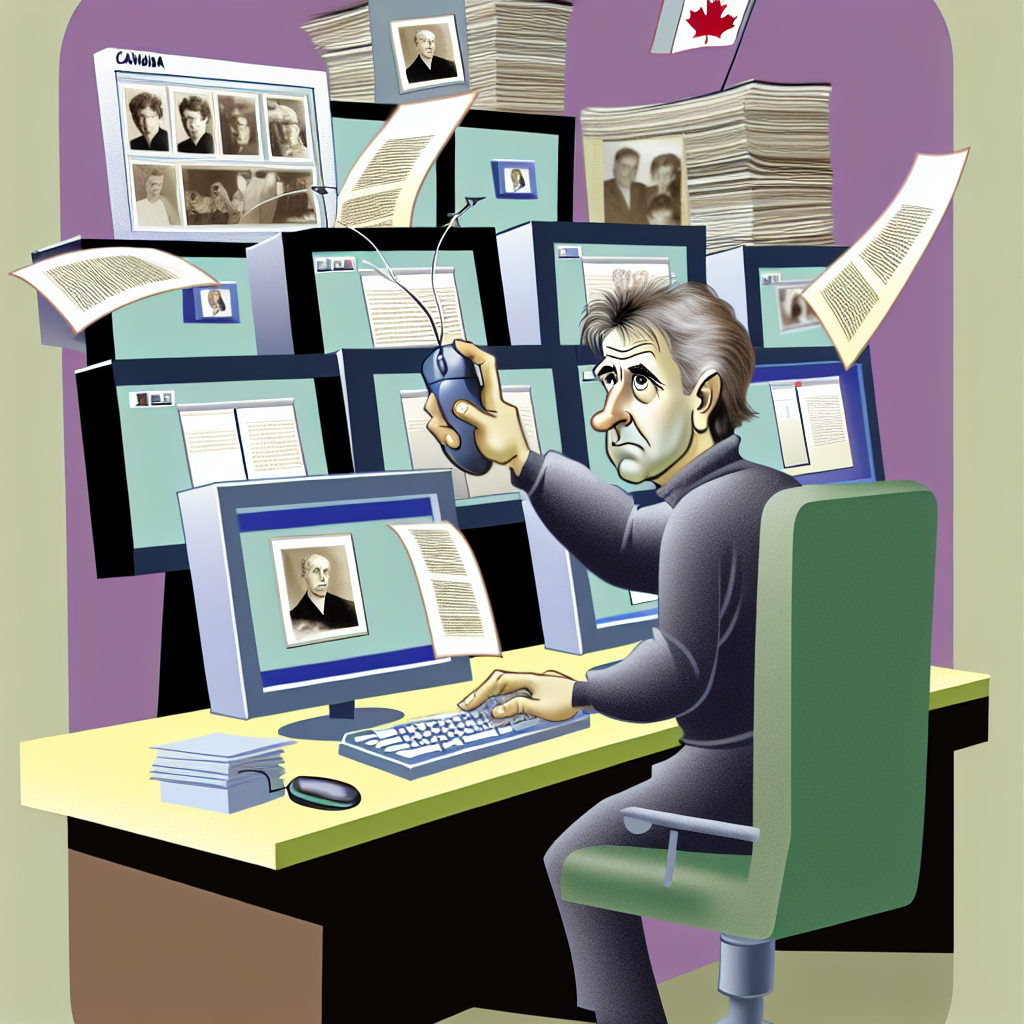The Evolving Role of Archivists in the Digital Landscape
Shifting Responsibilities
The advent of digital technology has transformed the role of archivists.
Archivists now curate both physical and digital collections.
They ensure that records remain accessible in multiple formats.
Moreover, they oversee the transition from paper to digital archiving.
This shift requires archivists to develop new skills constantly.
Digital Preservation Techniques
Archivists employ various techniques to preserve digital materials.
Data migration helps maintain accessibility over time.
Additionally, they utilize digital forensics to recover damaged files.
Metadata standards enhance the discoverability of digital records.
Collaboration with Technology Experts
Archivists increasingly collaborate with IT and data specialists.
They work together to implement robust archiving systems.
Such partnerships increase the efficiency of digital storage solutions.
Exporting data formats ensures compatibility across platforms.
Advocating for Digital Literacy
Archivists play a vital role in promoting digital literacy.
They educate users about best practices for digital asset management.
Workshops and training sessions empower individuals to locate records.
Archivists also advocate for ethical data sharing practices.
Supporting Research and Scholarship
Archivists support academic and historical research initiatives.
Their expertise helps researchers navigate vast digital collections.
They also create finding aids and guides for easier access.
This support enhances the quality and depth of research outcomes.
Responding to Challenges
Despite technological advances, archivists face ongoing challenges.
They must deal with the rapid obsolescence of digital formats.
Balancing between preservation and access can be complex.
In addition, ensuring the security of sensitive records presents issues.
Unlock Your Career Potential
Visualize a clear path to success with our tailored Career Consulting service. Personalized insights in just 1-3 days.
Get StartedEmbracing Future Innovations
The future promises exciting developments for archivists.
Emerging technologies, like artificial intelligence, offer new solutions.
Archivists can leverage these tools for enhanced preservation strategies.
As digital landscapes evolve, archivists will adapt accordingly.
Their role will remain crucial in safeguarding our digital heritage.
Understanding Digital Preservation and Its Significance
Defining Digital Preservation
Digital preservation encompasses methods for maintaining and safeguarding digital content.
It ensures the long-term accessibility of digital materials for future generations.
This process involves a range of strategies, including metadata management and format migration.
The Role of Archivists
Archivists play a vital role in digital preservation.
They evaluate, select, and organize digital materials for archiving.
Moreover, they develop preservation strategies that ensure digital content remains accessible.
In addition, archivists collaborate with IT professionals to implement technical solutions.
Challenges in the Digital Age
Digital preservation faces numerous challenges today.
Rapid technological changes can render formats obsolete quickly.
Additionally, data degradation threatens the integrity of digital content.
As a result, archivists must continuously monitor and update preservation methods.
The Value of Digital Preservation
Digital preservation adds significant value to cultural heritage.
It safeguards important documents, photographs, and audiovisual materials.
By doing so, it allows future generations to access their history.
Furthermore, digital preservation supports research and education by ensuring access to authentic sources.
Best Practices for Digital Preservation
Adopting best practices is crucial for effective digital preservation.
Archivists should establish standardized metadata for all digital assets.
Regularly auditing and maintaining files ensures their continued accessibility.
Lastly, collaboration with other institutions can enhance preservation efforts.
The Impact of Technology on Traditional Archiving Practices
Evolving Roles of Archivists
Technology has transformed the role of archivists in recent years.
Archivists now must adapt to digital preservation methods.
They increasingly leverage technology for efficient information management.
This evolution has broadened their skill sets dramatically.
Challenges in Digital Archiving
The rise of digital media presents unique challenges for archivists.
Data formats rapidly change, making long-term access difficult.
Moreover, digital files may require extensive storage solutions.
Archivists face the task of ensuring the integrity of these files.
Benefits of Digital Tools
Despite challenges, digital tools offer significant advantages.
They enhance accessibility to archival materials for users.
Searchable databases allow quicker retrieval of information.
Additionally, digitization processes can preserve fragile materials.
Collaboration and Community Engagement
Technology fosters collaboration among archivists and researchers.
Online platforms facilitate shared access to collections.
Furthermore, social media helps archivists reach broader audiences.
Engaging the community enriches the archival process.
Future Trends in Archiving
Looking ahead, technology will continue shaping archiving practices.
Emerging technologies promise innovative solutions for preservation.
Artificial Intelligence may enhance data sorting and organization.
As a result, archivists must stay informed about industry advancements.
Delve into the Subject: Mastering Lighting Techniques for Professional Photography
Case Studies: Successful Digital Archiving Projects
Preserving Historical Records
The United States National Archives launched an initiative to digitize historical documents.
This project made thousands of records accessible online.
Users can now view documents related to significant events in U.S. history.
Furthermore, it has encouraged public engagement with historical materials.
This effort demonstrates the importance of digital access in archiving.
University Archives Going Digital
Many universities have undertaken extensive digital archiving projects.
A notable example is Stanford University’s Digital Repository.
This platform provides access to manuscripts, photos, and audio recordings.
Consequently, it enhances research opportunities for students and faculty.
Libraries report increased inquiries and usage of these digital collections.
Community Archives Initiatives
Community organizations now prioritize archiving local histories digitally.
For instance, the Chicago History Museum has initiated a digitization project.
This project focuses on preserving local artifacts and stories.
As a result, residents can share their histories through an interactive platform.
This initiative strengthens community ties and promotes cultural heritage.
Corporate Digital Archives
Corporations increasingly recognize the value of digital archiving.
Microsoft has developed a Company Archive for its historical documents.
This archive documents the company’s evolution over the decades.
Additionally, it serves as a resource for researchers and historians.
This preservation effort reflects a commitment to corporate history and transparency.
Nonprofit Organizations Leading the Way
Nonprofits also engage in significant digital archiving efforts.
The Internet Archive stands out with its mission to provide universal access to knowledge.
This organization offers a vast collection of digital materials.
Moreover, it fosters access to educational resources for everyone.
Such efforts illustrate the vital role of archives in our digital society.
You Might Also Like: Essential Skills Every Graphic Designer Should Master
The Skills Required for Modern Archivists in a Digital World
Technical Proficiency
Modern archivists must possess strong technical skills.
They need to understand various digital formats.
Additionally, they should be adept at using archiving software.
Familiarity with metadata standards is essential.
Archivists also need to manage database systems effectively.
Analytical Skills
Analyzing digital materials is a critical skill.
Archivists must evaluate the authenticity of digital assets.
Furthermore, they should assess the relevance of information.
They conduct research to establish context for archival materials.
These analytical skills enhance the preservation process.
Communication Skills
Strong communication skills are vital for archivists.
They must convey complex information clearly.
Training and educating stakeholders is part of their role.
Additionally, they engage in outreach to promote archival resources.
Effective communication fosters collaboration within organizations.
Preservation Techniques
Modern archivists need to employ advanced preservation techniques.
They should understand both physical and digital preservation methods.
Knowledge of digital security protocols is necessary.
Furthermore, they need strategies for data migration and backup.
These techniques ensure the longevity of archival materials.
Legal and Ethical Understanding
A deep understanding of copyright laws is crucial.
Archivists must navigate various legal frameworks.
Ethical considerations in digital archiving are important to address.
They ensure that privacy concerns are upheld during archiving.
These principles guide their professional practices.
You Might Also Like: How to Transition into Graphic Design from Other Fields

Ethical Considerations and Challenges in Digital Archiving
Maintaining Confidentiality
Digital archivists face challenges in maintaining confidentiality of sensitive materials.
They must carefully evaluate what data to preserve and what to withhold.
While transparency is essential, privacy concerns often complicate archiving decisions.
Ensuring Authenticity and Integrity
Authenticity of digital records is vital for effective archiving.
Archivists implement various strategies to verify the integrity of digital content.
These strategies include checksum validation and regular audits.
Addressing Technological Obsolescence
Technological obsolescence is a pressing concern in digital archiving.
Archivists must stay current with evolving file formats and software.
They often migrate data to ensure continued accessibility.
Navigating Copyright and Intellectual Property Issues
Copyright laws pose significant challenges for digital archivists.
Archivists must navigate complex legal frameworks while preserving access.
Balancing the interests of creators and the public is critical.
Promoting Access and Inclusivity
Digital archiving aims to make information accessible to diverse audiences.
Archivists actively promote inclusivity through various outreach efforts.
Consequently, they work to dismantle barriers to access.
Implementing Sustainable Practices
Sustainability in digital archiving has gained increasing importance.
Archivists must consider environmental impacts of digital preservation methods.
Efforts to reduce carbon footprints and use renewable resources are growing.
You Might Also Like: Understanding the Basics of Graphic Design Principles
The Importance of Accessibility and User Engagement in Digital Archives
Enhancing Accessibility
Digital archives must be easily accessible to all users.
Accessibility ensures that diverse audiences can discover and utilize archival materials.
Moreover, user-friendly interfaces attract more visitors to online collections.
Archives should employ metadata standards for efficient searchability.
This practice improves the overall findability of digital resources.
For instance, including alt text for images assists visually impaired users.
Additionally, providing multiple formats caters to various user preferences.
Thus, formats like PDFs, HTML, and audio files enhance usability.
Furthermore, offering tutorials can guide users through the digital archive landscape.
Engaging Users
User engagement plays a crucial role in the effectiveness of digital archives.
Engaged users are more likely to share and promote archival resources.
This organic sharing benefits the archive’s community and reach.
Interactive features, such as comments and reviews, foster community input.
These features allow users to share personal stories related to the archives.
Moreover, gamification techniques can make the archival experience enjoyable.
Challenges or quizzes related to the collections encourage deeper exploration.
Events like virtual exhibitions can create shared experiences among users.
Consequently, public programming should focus on attracting diverse audiences.
Building Community Connections
Collaboration builds stronger ties between archivists and their communities.
Partnering with local organizations can amplify outreach efforts.
For example, schools and libraries can co-host events that highlight archiving.
Sharing archived content on social media platforms enhances visibility.
This strategy keeps the community informed about new resources and events.
Additionally, utilizing user-generated content encourages community participation.
Encouraging users to upload their memories related to the archive enriches collections.
Engagement platforms can serve as dynamic spaces for community interaction.
In essence, fostering a sense of ownership benefits both the archive and users.
Future Trends in Digital Archiving and the Role of Archivists
Evolving Technology Impacts
Advancements in technology continuously shape the archiving landscape.
Archivists must adapt to emerging digital formats and platforms.
Digital storage solutions evolve rapidly, providing new challenges and opportunities.
Cloud storage offers scalable options for extensive data preservation.
Moreover, blockchain technology can enhance data authenticity and security.
Challenges in Digital Preservation
Digital content faces potential threats from obsolescence.
Archivists must stay informed about evolving file formats.
Accessibility remains a critical concern for diverse digital archives.
Data migration strategies are essential for long-term preservation.
Furthermore, copyright issues complicate digital archiving practices.
Collaboration and Networking
Strong networks among archivists can facilitate best practices.
Collaboration across institutions enhances resource sharing.
Professional organizations play a vital role in knowledge dissemination.
Mentorship programs can foster skill development for new archivists.
Conferences provide platforms to discuss emerging trends and challenges.
Future Skills and Competencies
The role of archivists continues to evolve with technology advances.
Data analysis skills are increasingly important for archivists.
Familiarity with metadata standards enhances digital archive organization.
Archivists should also possess technical skills for digital tools.
Soft skills like communication will improve outreach and education efforts.
Promoting Public Engagement
Archivists must prioritize public outreach initiatives.
Community engagement fosters greater appreciation for archival work.
Social media platforms serve as tools for outreach and education.
Interactive exhibits can attract diverse audiences to archival materials.
Ultimately, public engagement enhances the visibility of archives.
Additional Resources
Hallie K. Reiss – Manager, Digital Production Assets and Archives …
Rethinking the Role of Libraries and Archives and Museums in the …




